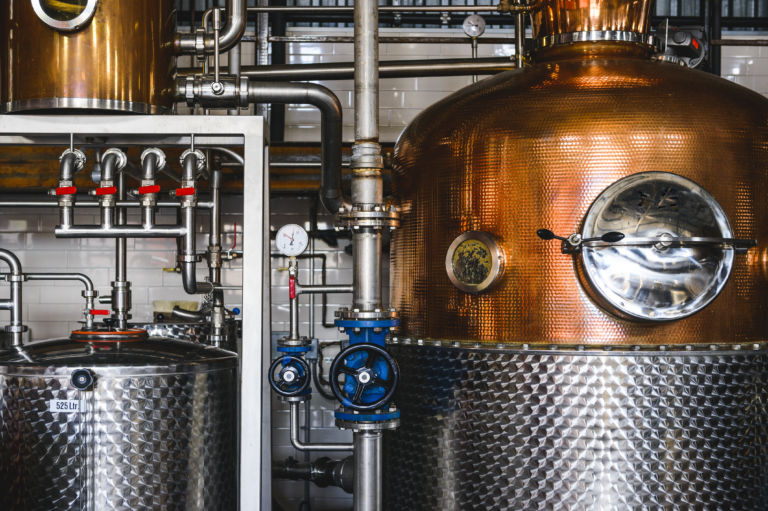The John Locke Foundation recently published a Spotlight (Hard to Swallow: Maze of Rules Hinders Expansion of State’s Alcoholic Beverage Industry) based on a talk I gave last summer at the Classical Liberals of the Carolinas annual meeting.
Our host was Adam Smith, who, along with fellow economist Bruce Yandle, wrote Bootleggers and Baptists: How Economic Forces and Moral Persuasion Interact to Shape Regulatory Politics. I referred to that book in my talk, and I refer to it in the Spotlight, not just because Adam was our host, but because it goes a long way towards explaining the persistence of North Carolina’s archaic alcoholic beverage regulations.
Here’s how Smith and Yandle summarize their theory:
Durable social regulation evolves when it is demanded by both of two distinctly different groups. “Baptists” point to the moral high ground and give vital and vocal endorsement of laudable public benefits promised by a desired regulation. … “Bootleggers” are much less visible but no less vital. Bootleggers, who expect to profit from the very regulatory restrictions desired by Baptists, grease the political machinery with some of their expected proceeds. They are simply in it for the money. …
The theory takes its name from the classic example of laws requiring liquor stores to close on Sundays, which were supported by both local alcohol bootleggers and anti-alcohol Baptists. … Both members of the politicking coalition are necessary to win. The Baptists enable accommodating politicians to say the action is the “right” thing to do and have folks believe them. The bootleggers laugh all the way to the bank — and may occasionally share their gains with helpful politicians.
In the Spotlight, I suggest that:
When it was originally put in place, the regulatory regime that governs the production, distribution, and sale of alcoholic beverages in North Carolina was presumably supported by an alliance that included — not just metaphorically but literally — bootleggers and Baptists. Nowadays, while some Baptists no doubt still take an interest in alcoholic beverage regulation, they are joined by a broad spectrum of concerned citizens who, regardless of their religious affiliation, worry about the harm that alcohol abuse inflicts, not just on the abusers themselves, but also on their families and on society. … As for the bootleggers, their role is now filled by government bureaucrats, wholesale distributors, large brewers and distillers, and other interest groups who benefit from the regulation of alcoholic beverages.
I go on to describe three ways in which alcoholic beverage regulations stifle entrepreneurship in North Carolina: the state operated monopoly on the distribution and sale of “spirituous liquor”; the state supported oligopoly on the wholesale distribution of beer and wine; and the complicated maze of licensing laws and administrative rules that discourage market entry at every level.
Looking towards the future I note that:
Support for the existing system of alcoholic beverage regulation will undoubtedly remain strong in North Carolina. The “Baptists” — i.e., the concerned citizens — will continue to support the system because they believe (wrongly) that it protects society from the harms associated with alcohol abuse. The “Bootleggers” — i.e., the government bureaucrats, wholesale distributors, large brewers and distillers, and other interest groups that benefit from the regulations — will continue to support the system because they believe (rightly) that it protects their jobs, their power, their investments, and their profits. …
Nevertheless, there are some hopeful signs. A new generation of sophisticated consumers is demanding more variety and more quality when it comes to alcoholic beverages, and a new generation of entrepreneurs has emerged to serve them.
After noting that both the consumers and the entrepreneurs (I call them “beer-lovers and brewers”) are becoming politically active, I note that:
In 2011, a coalition of consumers and entrepreneurs persuaded voters in Washington state to approve an initiative privatizing the state liquor monopoly; in 2012, a similar coalition persuaded the Connecticut legislature to repeal the state’s ban on Sunday sales; and just this year, yet another similar coalition persuaded the U.S. Supreme Court to overturn state laws banning the direct interstate shipment of wine to consumers. Let us hope North Carolina’s emerging coalition of beer lovers and brewers will turn out to be as effective as these other coalitions of consumers and entrepreneurs have been. …
Privatizing the state-run liquor business, breaking up the state-enforced wholesale distribution oligopoly, and eliminating unnecessary and unreasonable rules would usher in a golden age for alcoholic beverages in North Carolina and move us significantly closer to the goal of being “first in freedom.”
There’s lots more detail in the Spotlight itself. If you find yourself looking for something to do while you wait in line at your local ABC store, read the whole thing.


